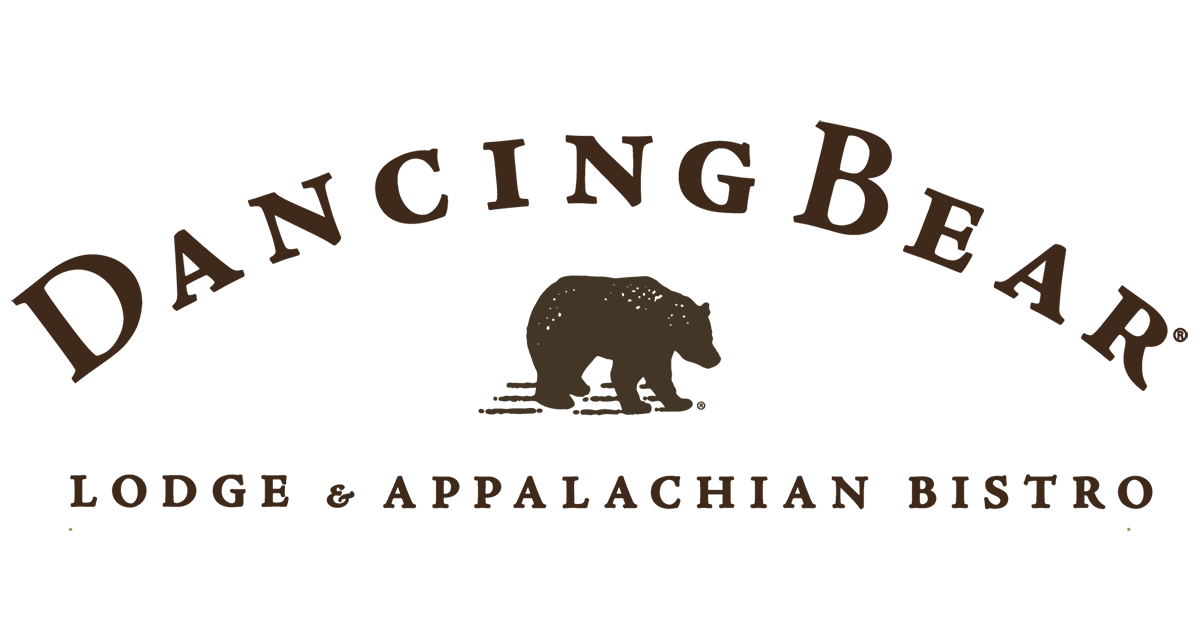The Appalachian Food Movement: History, Chefs & Restaurants
As long as there have been humans in the Appalachian mountains, there has been Appalachian cooking.
In an era when buzzwords like “locavore,” “farm-to-table,” and “foraged” are popping up on restaurant menus from New York to Los Angeles, even when the dishes themselves are a pastiche of national food trends, it’s comforting to know that there are still some truly hyper-local foodways that are inextricable from their place of origin.
Appalachian cuisine is one of these regional oddities, preserved in part by the isolation of many mountain communities, by the unpretentious nature of many Appalachian dishes, and because many of the tradition’s most iconic ingredients aren’t found anywhere else. And although many foodies have only just discovered this offshoot of Southern cooking, Appalachian cuisine has a long, rich history as old as, well, the hills.
Smoked meats, fish, corn, beans, and foraged vegetables like mushrooms, muscadines, ramps, poke, sumac, berries, ginseng, chestnuts, plantain, artichokes, and dandelions were all known to indigenous tribes from north Georgia to Pennsylvania. Dishes like poke sallet, succotash, and cornbread all have roots in Cherokee, Seneca, and Iroquois cooking. Even country ham’s time-honored place in Appalachian cuisine is rooted in trade between indigenous peoples and Spanish settlers, with hogs making their way up old Indian roads from Florida to New England.
With European immigrants came not just ham, but other flavors and techniques for preserving the bounty found in forests from the Great Smoky Mountains to the northern Allegheny.
German immigrants, for example, swapped the cabbage in their beloved sauerkraut for pickled onions, string beans, and chow chow. Canning gave rise to all manner of fruit preserves. And European distillation techniques provided a means to turn humble corn into white lightening— especially when Prohibition meant bootlegging moonshine could pad many families’ paychecks.
The practicality and affordability of those ingredients helped protect the integrity of Appalachian foodways over the centuries. These dishes and flavors were often overlooked, deemed unsophisticated in comparison to, say French haute cuisine or modern dishes that relied on canned goods, refined flour, or pricy imports like pimentos. The very poverty of many Appalachian communities helped keep their beloved foods one of the best-kept secrets in the country.
Indeed, it’s easy to forget that Southern staples like biscuits and pimento cheese were once pricey status symbols, achievable only if you had the money to spend on things like white flour, butter, and mayonnaise, not to mention refrigeration and hired help to fuss over kneading and proofing dough. Appalachian cooks stuck to what they had always been able to find not on store shelves, but in their own backyards and hollers, even as cooks across the country embraced (or, in the case of early food stamp recipients, had little choice but to utilize) shortcuts like canned soups, gelatins, and frozen produce.
Even today, Appalachian cuisine is something like a time capsule, harkening back to a time when eggs were pickled, not deviled, when turkey was served not just on Thanksgiving, but whenever a wild gobbler wandered too close to a hunter’s blind, and when rough-ground cornmeal made on your neighbor’s mill was more widely available than flour. This is the stuff of hunting season, woodland walks, and smokehouses, a truly forest-to-skillet cuisine that requires no formal training, just an instinct for inventively making use of whatever’s on hand.
Born & Bred in Appalachia
2011
Mark Oldham purchases The Historic Stonefort Inn and conceptualizes a restaurant featuring new Appalachian Cuisine.

December 12, 2012
TerraMae Appalachian Bistro opens in Chattanooga, TN.
February 14, 2013
Chef Shelley D. Cooper joins team as Executive Chef.

Summer 2013
“Appalachian Therapy” Cocktail Hour rolls out at StoneFort Inn.
Summer 2014
TerraMae Appalachian Farm produces first season of produce grown by Sharon Oldham.
Fall 2014
Mark Oldham purchases Dancing Bear Lodge in Townsend, TN & conceptualizes a second restaurant featuring Elevated Appalachian Cuisine.
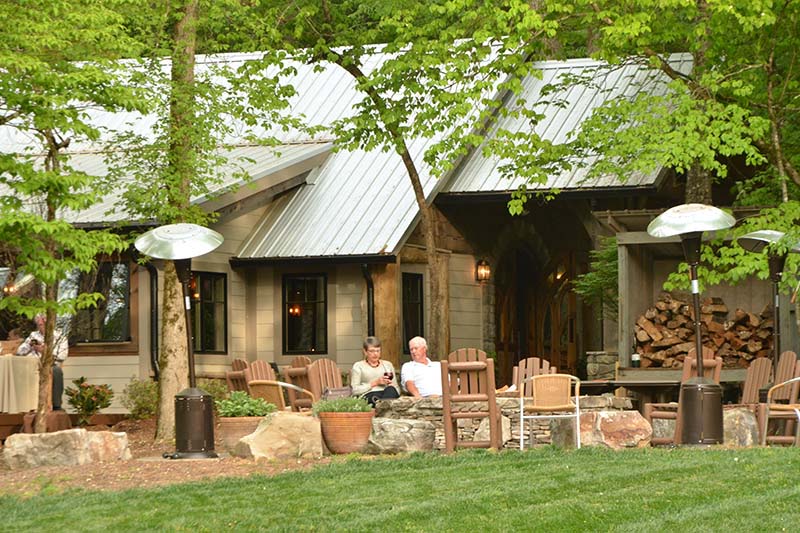
Fall 2014
Mark Oldham purchases Apple Valley Mountain Village.
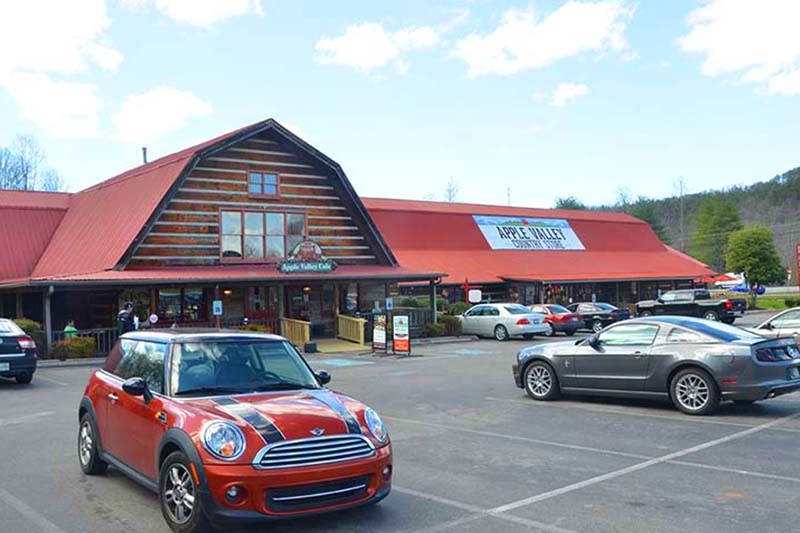
January 2015
Ground Breaking Ceremony for New Dancing Bear Appalachian Bistro.
May 2, 2015
Appalachian Pig Pickin’ Food Festival / Block Party at TerraMae Appalachian Bistro in Chattanooga.
August 21, 2015
Dancing Bear Appalachian Bistro Opens.

September 2015
Chef Shelley is 1 of 4 chefs participating in the 2nd Annual Appalachian Food Summit in Abingdon, VA.
Fall 2015
Stonefort Inn and TerraMae Appalachian Bistro are sold, but the Appalachian Restaurant Concept continued under new ownership through 2017.
Summer 2016
Dancing Bear Appalachian Garden produces first season of produce grown by Sharon Oldham.
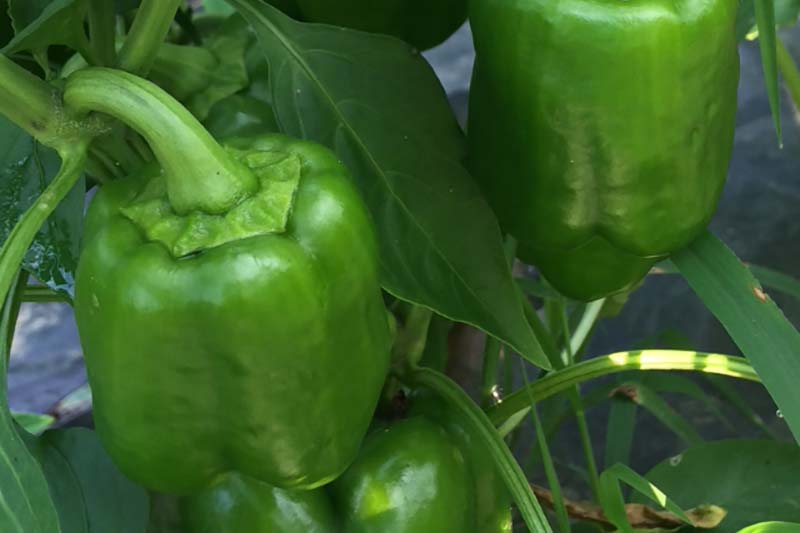
June 4, 2016
First Smoky Mountain Music Festival with Elevated Appalachian Festival Food & Music on the Lawn at Dancing Bear Event Center.
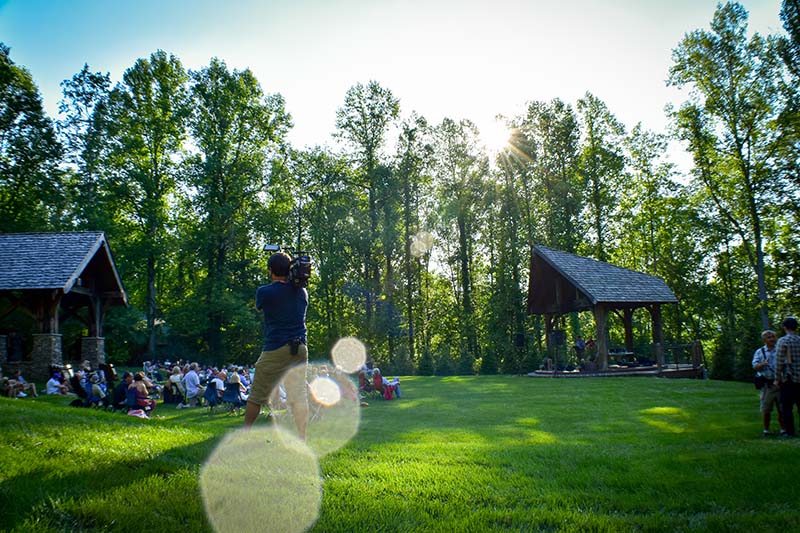
August 2016
1st Annual Bacon at the Bear Celebrating Appalachian Cuisine with Travis Melton, Ryan Kline, Jeff Carter & Renee Merritt.
2016
Chef Shelley featured in Victuals, An Appalachian Journey by Ronni Lundy, James Beard Winner.

January 2017
An Evening with Ronni Lundy at Dancing Bear Appalachian Bistro.
February 2017
Root Bound – Sip. Savor. Jam Appalachia.
March 23, 2017
Dancing Bear is featured in The South’s 38 Essential Restaurants – Eater.com.
November 2017
Dancing Bear Appalachian Bistro and Executive Chef Shelley featured on The Travel Channel’s “Food Paradise.”
May 2018
Guest Chef at Collective Spirit Private Wine Dinner to benefit The Bascom Center for the Visual Arts, Highlands, NC.
Summer 2018
Old Fashioned Smokehouse is built out of cinder block and black walnut wood.
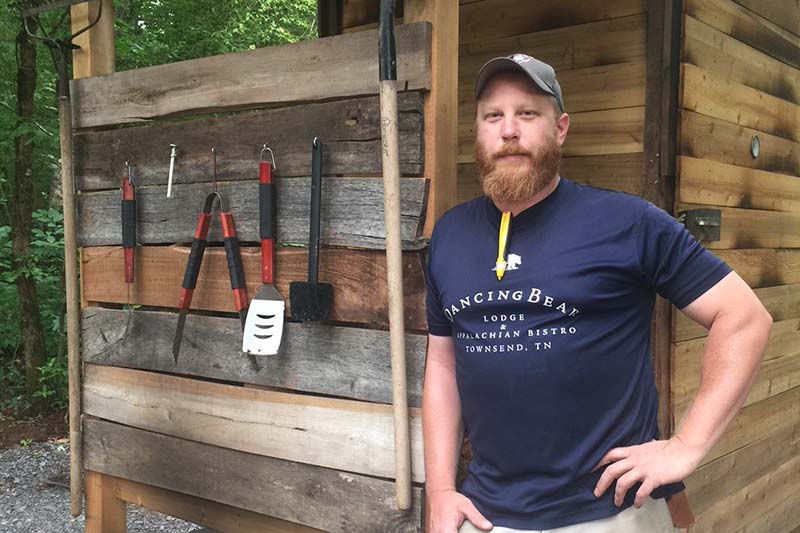
August 2018
Dancing Bear Appalachian Bistro and Chef Shelley are featured on Cooking Channel’s “Southern & Hungry” Season 2, Episode 3, Smoky Mountain Majesty.
September 2018
Chef Shelley’s Kilt Greens Doused With Delicious Bacon Fat featured in Wall Street Journal.
October 2018
Guest Chef at Honor Louis Osteen, Highlands, NC.
January 2019
Dancing Bear Appalachian Bistro wins Trip Advisor’s Top 25 Most Romantic Restaurants.

May 2019
Chef Shelley’s New Ambrosia Salad featured in Garden & Gun.
September 2019
Shelley is featured chef at the Chow Chow Festival in Nashville, TN.
November 2019
Guest Chef at Highlands Food & Wine Festival.
February 2020
Matt Burk joins the Dancing Bear Appalachian Bistro family as Bistro General Manager and certified sommelier.

August 2020
The Appalachian Bistro celebrated the completion of the Bar at the Bear as well as a kitchen storage expansion – The newly expanded bar now boasts a temperature-controlled 300+ bottle wine storage room and walk-in cooler as well as expanded bar space and seating.

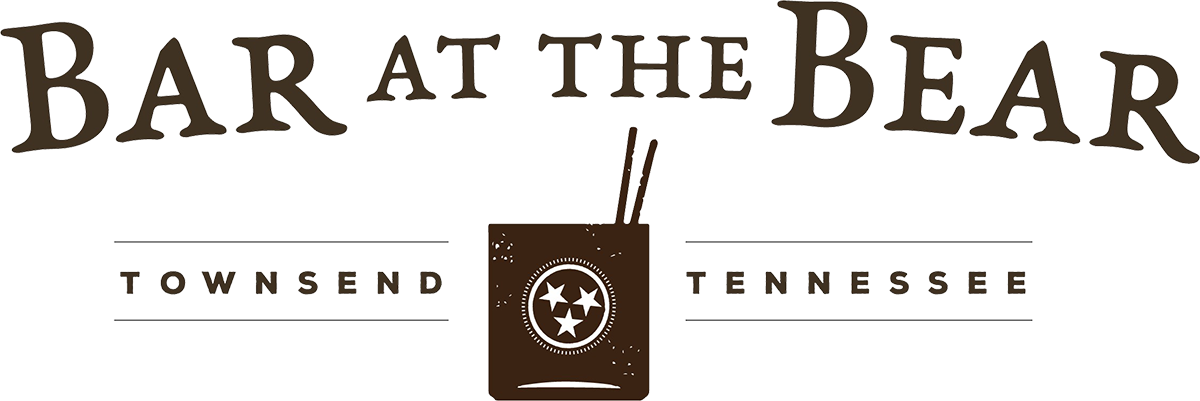
July 2021
Dancing Bear Lodge & Appalachian Bistro welcomes Jeff Carter as Executive Chef of Culinary Operations

December 2021
Dancing Bear’s Appalachian cuisine touted in Conde Naste Traveler
Meet Executive Chef Jeff Carter
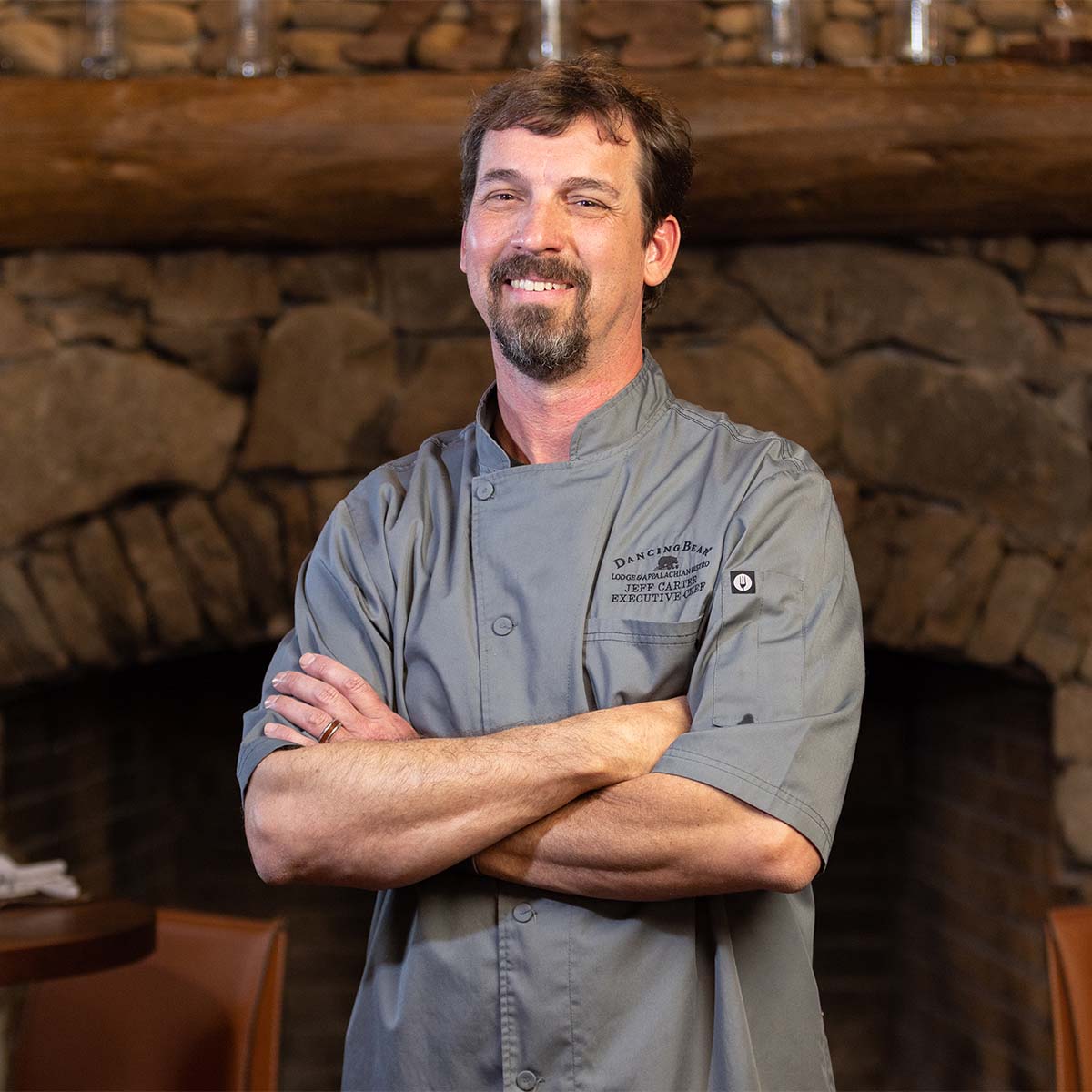
Chef Carter returned to Dancing Bear Lodge & Appalachian Bistro in the Summer of 2021 as the Executive Chef of the Bistro as well as the Oldham Hospitality Group. Jeff is excited to again dive into his passion of regionally refined Appalachian cuisine in beautiful Townsend, Tennessee. Learn his story and where he draws inspiration.
Mike Costello & Amy Dawson
Ian Boden
John Fleer
Travis Milton
Ashley Capps
Sean Brock
Christopher Huerta
Ryan Kline
Kent Graham
Chef Alex Gass
Chef Erik Hoover
Renee Merritt
